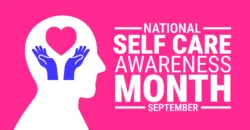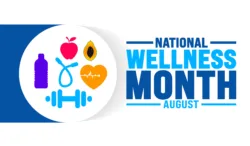Teen Suicide Warning Signs: What to Look For

It’s an unfortunate truth that teen suicide rates are on the rise. This fact leaves many parents, teachers, coaches, and caregivers feeling understandably concerned about teens who may have mental health disorders or who are simply vulnerable to extreme feelings associated with life events in adolescence. Every child is unique and responds differently to circumstances, making it that much harder to notice warning signs of suicide.
Nonetheless, there are some teen suicide warning signs to be on the lookout for. Additionally, any threat of suicide should be taken seriously. Knowing some warning signs lets you know when it’s time to step in and help.
Risk Factors
There are specific factors that put some at greater risk of suicidal thoughts and attempts than others. These factors include the following:
- Mental health disorders, including mood disorders
- Child abuse
- Sexual assault
- History of problems at school
- Previous suicide attempts
- Family history of mental illness or suicide
- Substance use
If your child or a child that you know has experienced one of these, knowing the signs and how to prevent suicide is crucial. The above risk factors do not guarantee suicide. That said, it is best that teens who display these risk factors receive professional help. As a parent, don’t be afraid to seek professional resources as well.
Even if your child does not think about suicide, such factors can negatively impact their life.
What are the Warning Signs of Teen Suicide?
Some common warning signs specific to teens include:
- Sudden shift in disposition, such as once being well-organized and suddenly becoming slovenly, could have unresolved mental health issues.
- Extreme feelings of sadness, isolation, and hopeless
- Changes in eating or sleeping behaviors
- Unexplained withdrawal from friends and family
- Decline in academic performance
- Giving away possessions that hold sentimental value to them
Note that the above signs do not automatically mean a teen is considering suicide, but they could still warrant intervention or professional help. As a parent, teacher or caregiver, do not ignore these warning signs if they are present.
What You Can Do
Of course, no parent, caregiver or teacher likes to see a child in pain. So, what can be done to help suicidal teens? Knowing the risk factors and warning signs is a great first step. The National Suicide Prevention Lifeline is an outstanding resource if you are concerned about someone and looking for ways to help.
Depending on the bond you have with the teen, they may be willing to talk with you if you offer to listen. When you raise the subject, do not be afraid to use the word “suicide.” It may be hard for both of you to talk about, but doing so is one of the best ways to get to the root of what’s going on. Even if your teen isn’t feeling suicidal, they may appreciate knowing how concerned you are about them.
Even if your child isn’t comfortable talking to you, know what resources are available to them and provide those resources to encourage them to seek support.
It’s also good to remove all lethal weapons from your home, such as medication and weapons that could be used as means to commit suicide.
You don’t have the training, education and experience of a therapist, so it may be necessary to get your teen professional help. This is also a good idea if they either cannot or will not open up to you for whatever reason. Sometimes, we have an easier time talking with strangers about what’s going on in our lives. Therapists have a professional training in mental health and suicide and can help your teen get the help they need. A professional network is also ideal for parents and caregivers, as you shouldn’t have to try to help them all on your own.
If a teen in your life struggles with mental health issues, intervention and specialized treatment are crucial. Call 1-800-273-TALK to reach the National Suicide Prevention Lifeline.
You can also call 888-694-9996 to learn more about Pyramid Healthcare’s treatment programs for teens.
It’s an unfortunate truth that teen suicide rates are on the rise. This fact leaves many parents, teachers, coaches, and caregivers feeling understandably concerned about teens who may have mental health disorders or who are simply vulnerable to extreme feelings associated with life events in adolescence. Every child is unique and responds differently to circumstances, making it that much harder to notice warning signs of suicide.
Nonetheless, there are some teen suicide warning signs to be on the lookout for. Additionally, any threat of suicide should be taken seriously. Knowing some warning signs lets you know when it’s time to step in and help.
Risk Factors
There are specific factors that put some at greater risk of suicidal thoughts and attempts than others. These factors include the following:
- Mental health disorders, including mood disorders
- Child abuse
- Sexual assault
- History of problems at school
- Previous suicide attempts
- Family history of mental illness or suicide
- Substance use
If your child or a child that you know has experienced one of these, knowing the signs and how to prevent suicide is crucial. The above risk factors do not guarantee suicide. That said, it is best that teens who display these risk factors receive professional help. As a parent, don’t be afraid to seek professional resources as well.
Even if your child does not think about suicide, such factors can negatively impact their life.
What are the Warning Signs of Teen Suicide?
Some common warning signs specific to teens include:
- Sudden shift in disposition, such as once being well-organized and suddenly becoming slovenly, could have unresolved mental health issues.
- Extreme feelings of sadness, isolation, and hopeless
- Changes in eating or sleeping behaviors
- Unexplained withdrawal from friends and family
- Decline in academic performance
- Giving away possessions that hold sentimental value to them
Note that the above signs do not automatically mean a teen is considering suicide, but they could still warrant intervention or professional help. As a parent, teacher or caregiver, do not ignore these warning signs if they are present.
What You Can Do
Of course, no parent, caregiver or teacher likes to see a child in pain. So, what can be done to help suicidal teens? Knowing the risk factors and warning signs is a great first step. The National Suicide Prevention Lifeline is an outstanding resource if you are concerned about someone and looking for ways to help.
Depending on the bond you have with the teen, they may be willing to talk with you if you offer to listen. When you raise the subject, do not be afraid to use the word “suicide.” It may be hard for both of you to talk about, but doing so is one of the best ways to get to the root of what’s going on. Even if your teen isn’t feeling suicidal, they may appreciate knowing how concerned you are about them.
Even if your child isn’t comfortable talking to you, know what resources are available to them and provide those resources to encourage them to seek support.
It’s also good to remove all lethal weapons from your home, such as medication and weapons that could be used as means to commit suicide.
You don’t have the training, education and experience of a therapist, so it may be necessary to get your teen professional help. This is also a good idea if they either cannot or will not open up to you for whatever reason. Sometimes, we have an easier time talking with strangers about what’s going on in our lives. Therapists have a professional training in mental health and suicide and can help your teen get the help they need. A professional network is also ideal for parents and caregivers, as you shouldn’t have to try to help them all on your own.
If a teen in your life struggles with mental health issues, intervention and specialized treatment are crucial. Call 1-800-273-TALK to reach the National Suicide Prevention Lifeline.
You can also call 888-694-9996 to learn more about Pyramid Healthcare’s treatment programs for teens.






